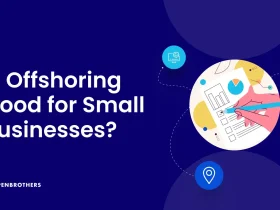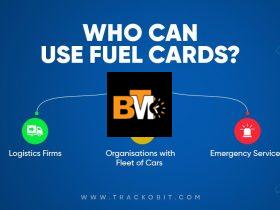Advanced data protection has grown essential as companies manage more sensitive data, such as financial records and consumer information. By means of creative tokenizing methods that safeguard private data while maintaining usability, protegrity tokenization presents a potent answer for data security. The fundamental elements of Protegrity tokenization—including its architecture, working principles, and practical uses in several sectors—will be discussed in this text. We will also discuss how companies may use these secure tokenizing technologies to provide strong data security Debut Infotech can assist in implementing.
Understanding Protegrity Tokenization
Protegrity tokenization offers a more advanced method of protecting data. tokenization replaces original data with unique symbols, or “tokens,” that preserve the data’s format but lack any inherent value unlike traditional encryption, which substitutes complicated codes for sensitive data. The actual data is kept in a safe vault, hence it is challenging for illegal users to get the original data.
In sectors such as finance, healthcare, and real estate where data security and regulatory compliance take front stage, tokenization is vital. Protegrity’s innovative solution helps companies to control data security while making sure data stays accessible and usable on several systems.
How Does Protegrity Tokenization Work?
To answer the question, how does protegrity tokenization work, we need to understand the process of protegrity tokenization. The revolutionary process of Protegrity tokenization involves the use of a secure vault, in which the actual data is stored in a separate location from the tokens. This ensures that sensitive information is safeguarded even in the event that tokens are revealed. This two-level approach offers simplicity of use together with security:
- Tokenization Process: Tokens that mirror the structure of the original data replaces sensitive data. A credit card number, for example, might be converted into a random sequence that seems like a real card number but has no inherent worth. This method guarantees that sensitive information is neither kept or handled in its natural state, therefore lowering possible risk and possible breaches.
- Detokenization: Authorised users may access the original data via a regulated detokenizing mechanism. This functionality enables enterprises to retrieve relevant data in a safe manner, thereby enabling essential activities and meeting reporting needs without compromising security. Unauthorised users, however, lack ways of reverse-engineering the token to access the original data.
Companies looking for versatile and safe data handling solutions can find great advantage from this layered approach. With its flexibility, protegrity tokenization is suitable for tokenizing on many platforms, including cloud and hybrid systems.
Protegrity Tokenization API
Protegrity offers a strong tokenizing API that lets companies include tokenizing features straight into their current systems and apps, therefore guaranteeing data security without upsetting accepted procedures. This API is meant to enable flawless deployment across several platforms, therefore enabling companies to embrace Protegrity’s tokenizing solutions in a flexible and orderly fashion. From legacy systems to cloud-based apps, businesses may apply data security across a spectrum using Protegrity’s API without sacrificing capability or efficiency.
The Protegrity tokenization API offers several essential features:
- Flexible Integration: The API provides businesses flexibility to apply tokenization anywhere needed inside their technological stack by connecting with a great range of apps, databases, and platforms. For companies with complicated or heterogeneous data environments, this versatility makes it the perfect choice since it lets tokenization operate across several platforms.
- Efficient Tokenization and Detokenization: The API lets authorized users control detokenize sensitive data in addition to facilitating tokenizing of such data. This dual use guarantees that data stays encrypted when not in use but easily available when needed by authorized users or departments.
- Enhanced Data Security Control: By means of the API, companies acquire more control over their sensitive data, such facilitating direct access management policy implementation inside the apps handling sensitive data. This arrangement not only enhances data security but also helps compliance initiatives since businesses can show their dedication to data protection criteria.
- Scalability and Performance: For companies with high data flow, Protegrity’s tokenizing API is rather scalable since it was designed to manage massive data transactions. Its smart architecture guarantees that tokenization techniques have no effect on application performance, which allows businesses to keep speedy and flawless operations even as they protect private data.
Protegrity Tokenization Architecture
The tokenization architecture of Protegrity is painstakingly crafted for both security and scalability, as a result fulfilling the demand for adequate data protection without sacrificing efficiency. Protegrity tokenizes data at several points in the process using the decentralized paradigm, consequently lowering possible vulnerabilities throughout the data lifetime and guaranteeing that private data stays under control from all angles. Sensitive information remains secure from illegal access at every level.
The architecture consists of several key components:
- Tokenization Vault: Actual data is kept apart from its tokenized form in this extremely safe storage method. Even if tokens are obtained outside the safe surroundings, the vault guarantees that private information is kept from view.
- API Integration Layer: The layer of API connection links Protegrity’s tokenizing features to a range of tools and platforms thereby enabling companies to easily include tokenizing capabilities into their current processes and IT system. This layer helps safe data processing on-site, across clouds, and in hybrid systems.
- Access Management: Protegrity’s design contains a thorough access management mechanism, thereby limiting detokenization rights to authorised workers alone. This guarantees that full compliance with privacy rules is maintained by sensitive data staying unreachable to illegal users.
- Scalable and Flexible Design: Highly scalable for companies with rising data management needs, the architecture is built to manage vast amounts of data settings. It also allows deployment over several settings, including hybrid and cloud-based configurations, thereby allowing companies to safeguard data wherever it lives.
Whether in storage or transit, Protegrity’s tokenizing architecture lets companies protect private information at every level of operations. This architecture guarantees strong security that fits to a company’s changing data management needs by means of constant protection and platform compatibility.
Protegrity Tokenization Examples in Real-World Scenarios
Examining several Protegrity tokenization examples will help us to better grasp how tokenization functions in reality:
- Financial Transactions: By substituting sensitive integers with tokens that payment systems can securely process, integrity tokenization is a popular technique for protecting credit card information and transaction data.
- Healthcare Data: Tokenization protects private patient information—such as Social Security numbers or medical records—for healthcare providers, therefore enabling HIPAA compliance.
- Real Estate Tokenization Platforms: Using Protegrity tokenization to guard data on property ownership, investments, and financial details, real estate tokenization systems ensure that priceless real estate information is kept safe all through transactions.
Token Development and Data Tokenization
Token development is the development of tokens able to represent sensitive information without sacrificing their format. Protegrity tokenization provides tools to build safe tokens flexible for different data kinds, hence simplifying token development.
Handling large number transactions or records calls for data tokenization. By supporting safe and effective data tokenization, protegrity tokenizing lets companies handle large volumes of data without revealing private information.
Integrating artificial intelligence into tokenization systems presents further security opportunities. Artificial intelligence is used in AI tokenization to improve data tokenization by means of flexible and responsive tokens able to handle dynamic data settings.
Apart from artificial intelligence tokenization, real world asset tokenization is also gaining popularity particularly in real estate. Fractional ownership made possible by tokenizing physical assets is transforming how individuals invest in high-value properties and assets. Offering safe and easily available real world asset tokenization, Protegrity tokenization helps companies guard critical ownership data.
Advantages of Protegrity Tokenization for Businesses
For companies, protegrity tokenization has a number of advantages.
- Enhanced Security: Separating sensitive information from tokens helps Protegrity lower the possibility of data leaks and illegal access.
- Compliance: Protegrity tokenization supports regulatory compliance across various standards, including PCI-DSS, HIPAA, and GDPR.
- Scalability: Its adaptable architecture makes Protegrity tokenization suitable for cloud, on-premises, and hybrid environments.
- Operational Flexibility: Businesses can integrate tokenization seamlessly into their processes using the Protegrity tokenization API, ensuring secure data handling.
Protegrity tokenization is a valuable solution for businesses handling sensitive data. It provides the following benefits:
- Versatile Security Architecture: Protegrity tokenization architecture ensures secure data handling from storage to transit, making it highly versatile.
- Flexible Integration: The Protegrity tokenization API enables easy integration, allowing businesses to incorporate tokenization without major disruptions.
- Real-World Applications: From finance to real estate, Protegrity tokenization supports various industry needs, protecting data across transactions and asset management.
How Debut Infotech Can Help with Protegrity Tokenization
For companies trying to safeguard their data assets, Debut Infotech offers complete services in using Protegrity tokenization. Debut Infotech helps businesses safely handle private data using knowledge in token development, data tokenization, and AI tokenization.
Debut Infotech’s staff provides tailored solutions for the best real estate tokenization platform and other industries where actual asset tokenization is vital. From connection with current systems to guaranteeing regulatory compliance, Debut Infotech can help companies through the technical elements of Protegrity tokenization as a trusted partner.
Protegrity provides a strong tokenization platform that lets companies protect data in several spheres. The platform is flexible for companies of various kinds since it interacts with current systems and apps.
tokenization systems are rather important for real estate-based businesses. Using Protegrity tokenizing, a real estate tokenization company can secure asset ownership, transaction information, and investment data, consequently establishing a more secure atmosphere for digital real estate investments.
Conclusion
With Protegrity tokenization architecture, API, and platform support producing a safe, efficient, and scalable system, Protegrity tokenization is in general a great tool for safeguarding sensitive data across industries. Businesses can use these features to improve data security and regulatory compliance by means of partners such as Debut Infotech, therefore offering a safer and more flexible answer for data protection.







Leave a Reply